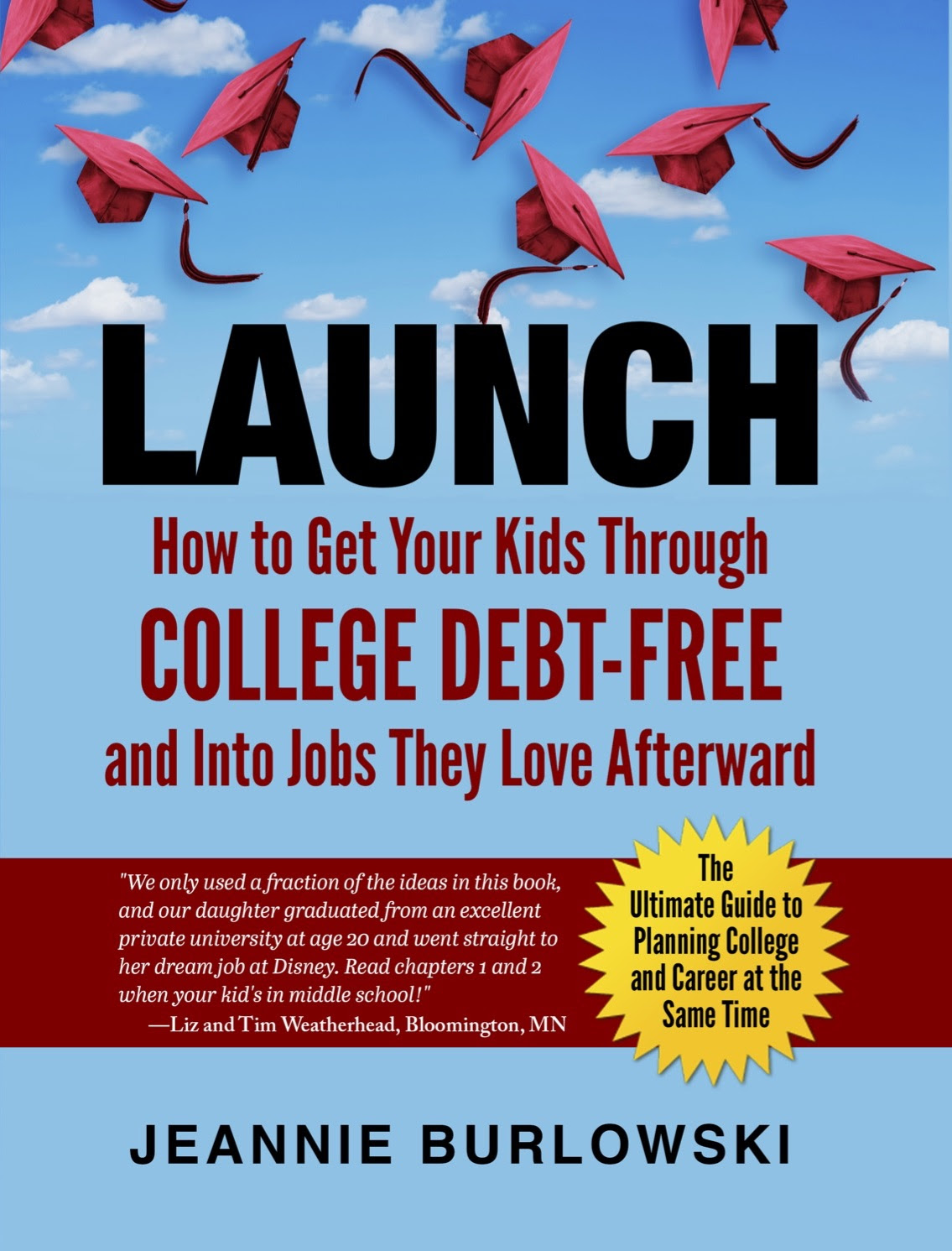No parent wants to consider this—but what happens if one of your children runs up $80,000 in student loan debt, and then perishes in a car accident or dies of cancer?
Will your grief be compounded by having to make years (decades!) of student loan payments, until the student loan obligation is paid in full?
Every parent needs to be clear on the answer to this question: “What happens to student loan debt after you die?”
The answer is scary, but—there’s great hope for those who can plan ahead just a bit.
What happens to student loan debt after you die?
First, the good news, then the bad news.
1. If the loans are Federal Direct Student Loans (the ones you get only by filling out the FAFSA form), the debt goes away when the borrower dies.
According to U.S. Department of Education policy, if a borrower of a federal student loan dies, the loan is automatically canceled and the debt is discharged by the government. (This is one of many reasons why I urge parents, please—fill out the FAFSA form, even if you’re rich. It’s the only way to get the best, safest student loans in the event that you end up needing them.)
Unfortunately, private student loans do not offer the same protection against liability.
2. If the loans are private student loans, the news is scary.
Very few private student loan lenders offer what are called “death discharge protections” or “death and disability forgiveness policies.” If the borrower dies, someone left behind has to pay up.
Who will that be?
Typically, the private student loan lender will first try to get the money from the borrower’s estate. If there is no estate, then the private loan lender will go after the cosigner of the loan. (In most cases, grieving parents or grandparents.)
“Oh, no! What can I do to protect myself from this?”
If you’re currently thinking about cosigning a student loan for someone, please, please hold off until you read my article 7 reasons you should never cosign a student loan.
If you’re currently shopping for private student loans (or if you’ve cosigned private student loans for someone already), call the lender’s customer service phone number and ask: “Does this policy offer any death discharge protections or death and disability forgiveness policies? If so, I need to see the fine print that clearly states this. Can you send me a copy of my policy with that part highlighted? Oh—you actually don’t know the answer to this question? Could you please transfer me to someone who does?”
If you find that you’ve cosigned a student loan that does not offer these important protections, you might want to get yourself free from that debt as soon as possible.
“How can I remove myself from being a cosigner on a private student loan?”
1. You can take steps to get a “cosigner release.”
With private student loans, you may be eligible for a cosigner release once the person you signed for makes a certain number of consecutive on-time payments and completes a credit check. But you’ll likely have to insistently and proactively “beat down the door” of the student loan servicer in order to make this happen.
2. You can dive full-speed ahead into paying the loan off, yourself, as fast as you can.
Taking a Financial Peace University class near you can help you with this.
Remember, if you pay your daughter’s private student loan off early, she can still fulfill her obligation to you by making payments directly to you.
“I’m married to someone who has a lot of private student loan debt. What’s my liability for those loans?”
Very important! See my article “Are You Married to Student Loan Debt?” here.
I have student loan debt of my own. How can I get free of it as quickly as possible?”
I’m so glad you’re asking that! Leaving student loan debt behind after you die can cause nightmares for the people you love, even if that debt is forgiven or discharged. Why? Because there can be tax repercussions on forgiven debts—even on student loan debt that has been canceled due to death or disability.
“What else do I need to do to protect myself and my family?”
Listen closely to Suze Orman’s advice on this subject. In this video, Suze advises a young couple with private student loans to take out a term life insurance policy that will cost just $30 per month or less. (A tiny amount considering the protection it provides.) If the student dies with this term life insurance policy in place, money will be immediately available to pay off those student loans and leave no debt burden for loved ones left behind.
Parent, you can avoid all of these headaches by getting your kids through college debt-free.
For clear, step-by-step help with the whole process from beginning to end, get your copy of my book:
Important—> It’s a reference book, so nobody reads the whole thing cover to cover. Pick out what you need to read in it using the fast-paced, 10-minute video instructions here.
You can see hundreds of reviews of this book on Amazon by going to:
Read just one chapter of LAUNCH every 1–3 months while your child’s in middle school and high school, and you’ll know every viable strategy for debt-free college at exactly the right time to implement it.
And if your child’s already well past middle school? That’s OK; you can run to catch up. But the process of getting your kids through college debt-free goes more smoothly the earlier you start it—especially if you’re not planning to save up any money to pay for college.
Let's you and I walk together toward the goal of debt-free college for your kids.
We can accomplish this no matter your current income level—even if your kids never get a single scholarship.
Your first step is getting regularly scheduled, free helpful articles from me—right in your email inbox. Quick, sign up here.
Do you have very specific questions for me about debt-free college and career for your kids?
My TRIBE Members get the most direct access to me—while feeling good that the pennies per day they spend on the TRIBE help me bring debt-free college strategy to families who could never afford to pay for it. Join my TRIBE Membership waiting list here.
Who is Jeannie Burlowski?
Jeannie is a full-time academic strategist, podcast host, and sought-after speaker for students ages 12–26, their parents, and the professionals who serve them. Her writing, speaking, and podcasting help parents set their kids up to graduate college debt-free, ready to jump directly into careers they excel at and love. Her work has been featured in publications such as The Huffington Post, USA Today, Parents Magazine, and US News & World Report, as well as on CBS News.
Jeannie also helps students apply to law, medical, business, and grad school at her website GetIntoMedSchool.com. You can follow her on Bluesky @jburlowski.bsky.social.
No part of this article was written using AI.
This article was updated on April 7th, 2025.



